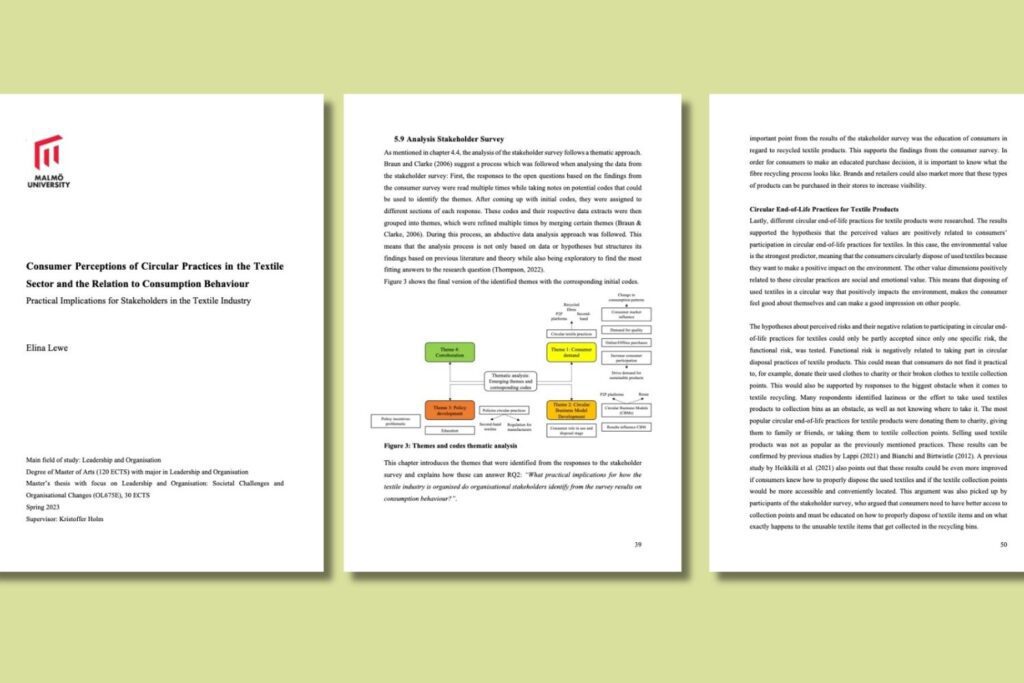
Abstract:
The textile industry has a substantial negative impact on the environment. In order to decrease the environmental impact, the industry needs to transition to a more sustainable and circular system. One way of doing so is to increase participation in circular practices, like participating in circular end-of-life practices or purchasing second-hand or recycled textile products. This Master’s thesis explores the consumer role in this transition and is structured in a two-step approach. The first part investigates how consumers’ value and risk perceptions of different circular practices in the textile industry are related to their consumption behaviour by conducting a consumer survey (N = 3000) in three European countries. The second part of the thesis then identifies from an organisational stakeholder perspective how the consumer survey results can be practically applied in the textile industry. The thesis follows a mixed method approach, combining a quantitative consumer survey with a qualitative stakeholder survey.The results show that in most cases, consumers’ value perceptions of circular textile practices are significantly positively related to their consumption behaviour or participation in these, whereas perceived risks are negatively related. The findings also show which individual value and risk dimensions are related to which specific circular practice. Based on these results, organisational stakeholders identify different possibilities on how these findings can be practically applied in the textile industry. Suggestions focus on encouraging specific circular practices shown to be important to consumers, adapting marketing strategies and developing new policies to increase participation in more sustainable and circular alternatives.
“Consumer Perceptions of Circular Practices in the Textile Sector and the Relation to Consumption Behaviour: Practical Implications for Stakeholders in the Textile Industry”, by Elina Lewe, Malmö University, Faculty of Culture and Society (2023).